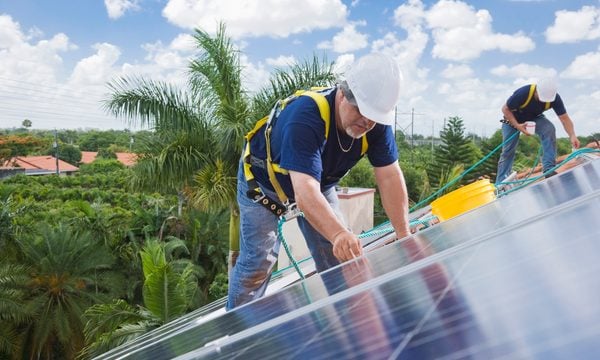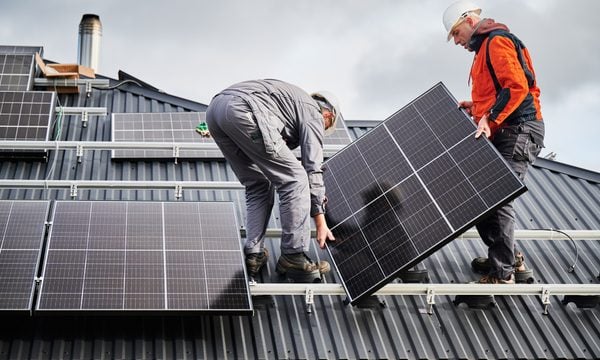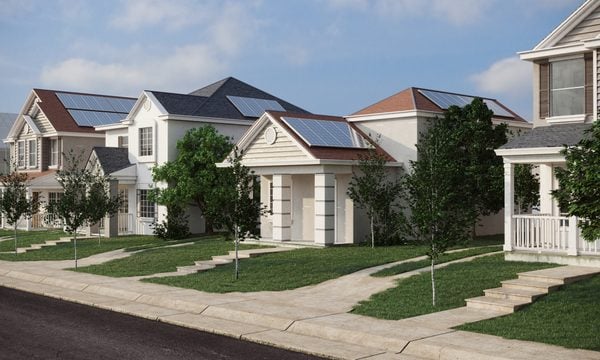What Is Solar Panel Efficiency?
Solar panels that are more efficient generate more electricity.
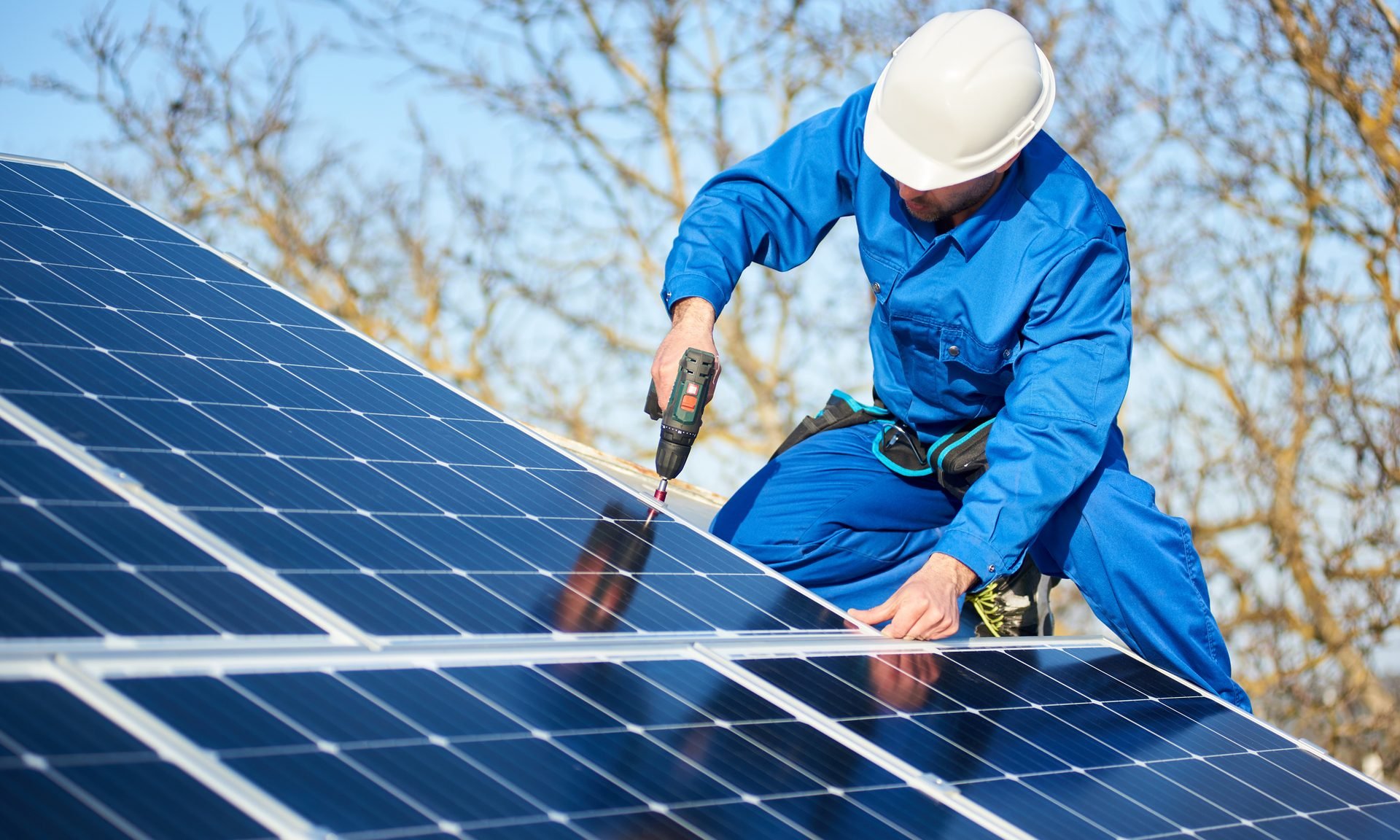
Some or all of the mortgage lenders featured on our site are advertising partners of NerdWallet, but this does not influence our evaluations, lender star ratings or the order in which lenders are listed on the page. Our opinions are our own. Here is a list of our partners.
Solar panel efficiency is a measure of how well a solar panel converts sunlight into electricity. Today’s residential solar panels are 21% efficient on average (some are up to 23% efficient), meaning that they convert 21% to 23% of the sunlight that hits them into electricity.
Why solar panel efficiency is important
When sunlight shines on your solar panels, only a fraction of it is converted into electricity that your home can use. So solar panels that are more efficient generate more electricity. Does that mean you need the most efficient panels for your home? Not necessarily. The most efficient panels are also the most expensive.
When determining which panels to get, consider these two factors:
- Space on your roof. If your roof space is limited and you want to maximize your electricity production, you may want to select more efficient panels. This is especially important if you plan to increase your electricity use in the future by switching to an electric car or an electric heat pump.
- Lifetime savings. More efficient panels cost more upfront, but because they generate more electricity, they may save you more over the life of your solar system. To estimate what you’ll save over your system’s lifetime, check your solar quotes to see how much your system is expected to produce every year and compare that to your current electric bill. Keep in mind that production figures are estimates, and electricity prices are volatile, so you can only calculate a rough estimate.
Solar panel efficiency is just one factor to consider when comparing solar quotes. Also look at your electricity use, proposed system size, cost per watt, solar inverter, warranties, and financing options. Choosing a reputable installer is key, as they can help you determine which panels will work best for you.
Most efficient solar panels
SunPower solar panels, the most efficient panels at 22.8%, will cost quite a bit more than any others. You can spend less and get panels rated at 22.2%–22.5% efficiency, which is still high.
The following are the most efficient solar panels, but even less-efficient panels can be very high quality and generate plenty of electricity for your home. You can review your solar quotes to see how efficient your proposed panels will be.
| Brand | Model | Efficiency | Average cost of 11kW system after tax credit |
|---|---|---|---|
| SunPower | M series SPR-M440-H-AC 440 W | 22.8% | $27,511 |
| QCELLS | Q.TRON BLK M-G2+ 440W | 21.8% | $21,768 |
| Maxeon Solar Technologies | Maxeon 3 BLK-R 420 W | 22.2% | $25,551 |
| Panasonic | EVERVOLT_430HK2 | 22.2% | $22,323 |
| REC Group | Alpha Pure 410 W | 22.2% | $20,459 |
Source: EnergySage, a solar and home energy product comparison marketplace founded in 2012.
What affects solar panel efficiency?
The efficiency of your solar panels is affected by factors beyond their rated efficiency, such as these:
- Placement on your roof. Your solar panels will be most efficient where they get the most sunshine. In the northern hemisphere, that means on a south-facing roof; the second-best positions are east- and west-facing roofs. The installation angle will also affect production; according to the U.S. Department of Energy, the ideal angle for panels on most U.S. homes is between 15 and 40 degrees .
- Sunlight. The amount of sunshine in your area will affect your solar panel efficiency; shading from clouds, trees or other buildings can also be a factor.
- Temperature and climate. You may think solar works best in hot, sunny areas. Although sun is a major factor in solar panel efficiency, solar panels actually generate more energy when they’re a bit cooler. The ideal temperature for solar panels is 25°C (77°F); they will work when it gets hotter, but they won’t be quite as efficient.
- Temperature coefficient. A solar panel’s temperature coefficient is the amount that its electricity production decreases for every degree above 25°C (77°F). For example, if panels have a coefficient of -0.3, their productivity will decrease by 0.3% for every degree above 25°C. The temperature coefficient of most panels is between -0.3% and -0.5% .
- Dust and debris. Anything that keeps sun from getting to your panels will affect their efficiency, including the accumulation of dust and debris. In drier, dustier parts of the U.S., solar panels can lose up to 7% efficiency annually.
How to increase your solar panel efficiency
To get the most out of your solar panels, follow these guidelines.
- Install your panels in the right place. In addition to installing your panels on the optimal side of your roof at the proper angle, ensure that they won’t be shaded. Trim any trees that might grow over your roof, and watch for leaves and pollen that might fall on your roof.
- Clean your panels regularly. Cleaning your panels once or twice a year will help ensure their maximum efficiency. You can do this yourself or hire a professional.
- Monitor your system. These days, solar systems come with monitoring features that allow you to track energy production on your computer or smartphone. It’s a good idea to check now and then to ensure that your panels are producing as they should. Drops in efficiency of about 0.5% annually are normal. Any drops higher than this could be a sign that your panels need cleaning.
Frequently Asked Questions
What’s the most efficient type of solar panel?
Solar panels are made of either monocrystalline cells (made with a single silicon crystal) or polycrystalline cells (made by melting together multiple silicon crystals). Most residential solar panels today are monocrystalline, which are more efficient than polycrystalline panels .
Should I wait for solar panels to get more efficient before going solar?
Solar panels keep getting more efficient. Maxeon Solar Technologies recently announced they had achieved a very high efficiency of 24.9%; however, these panels are expensive and will not be widely available until late 2024 .
How can I tell how much solar will fit on my roof?
The PV Watts Calculator from the National Renewable Energy Laboratory can estimate how much solar will fit on your roof and how much electricity the system will produce each year. First, determine your total electricity consumption for the year by adding your kWh consumption from your last 12 electric bills. Then, compare that with the annual kWh production estimate from PV Watts. You can use that calculation to help determine whether to get higher-efficiency panels.
Article sources
NerdWallet writers are subject matter authorities who use primary,
trustworthy sources to inform their work, including peer-reviewed
studies, government websites, academic research and interviews with
industry experts. All content is fact-checked for accuracy, timeliness
and relevance. You can learn more about NerdWallet's high
standards for journalism by reading our
editorial guidelines.
- 1. U.S. Department of Energy. Homeowner’s Guide to Going Solar. Accessed Oct 5, 2024.
- 2. U.S. Department of Energy. Understanding Solar Photovoltaic System Performance. Accessed Oct 5, 2024.
More like this
Related articles
AD
Save On Solar Without the Middleman
Free Instant Quote
on Project Solar's website

AD

Save On Solar Without the Middleman
- $750 OFF install with NerdWallet;
- SolarCare™: top-tier warranty & 25-year production guarantee;
- No sales commissions mean premium equipment & tech at up to half the price.
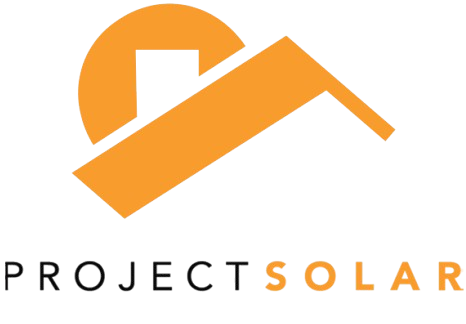
Free Instant Quote
on Project Solar's website




